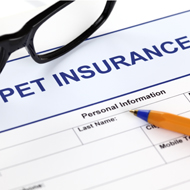Vets asked to share concerns about RSA network

When the proposals were first announced earlier this year, significant concerns were raised by veterinary organisations and members of the profession.
Vets are being asked to share their concerns about the RSA's new 'Preferred Referrals Network' for veterinary treatment.
The network was formally launched by UK pet insurer RSA last week and is currently formed of 27 veterinary practices.
Clients with insurance policies underwritten by RSA will be referred to the list of 'preferred' referral practices should their pet need a non-emergency referral.
BVA and BSAVA are now urging members to get in touch with any concerns about the network and to keep them up to date with how the changes are working in practice.
Under the RSA's new requirements, if a veterinary surgeon recommends a referral practice that is not part of the network, the client will potentially need to pay £200 towards the referral practice's bill, depending on the conditions of their insurance policy.
RSA has stated, however, that it will look at each case on its merits. If there is a justifiable reason for being referred to a vet outside of the network, RSA will discuss this with the client individually.
The company provides insurance policies for over one million cats and dogs in the UK, underwriting policies for numerous high street brands including MORE TH>N and Tesco Bank, which are the first to switch to the new requirements. The new network has been introduced to address pressures on the pet insurance industry.
When the proposals were first announced earlier this year, significant concerns were raised by veterinary organisations and members of the profession. RSA initially said in non-emergency referral cases, clients should contact RSA and discuss which practice they should be referred to.
The RCVS stated that the responsibility for choosing an appropriate referral practice must remain with the veterinary surgeon.
Meetings have since been held with key veterinary organisations, including BVA and BSAVA, who said in a recent statement: "This so-called 'engagement' should not be read as implying the two Associations' complicity or acceptance of the changes.
"We stressed our concerns to RSA and would welcome opportunity for further input."
They also emphasised that any decisions made must be in the best interests of the pet, not driven by cost.
RSA is writing to 4,500 first opinion veterinary practices to make them aware of the preferred network practices and policy changes.



 The Veterinary Medicines Directorate (VMD) is inviting applications from veterinary students to attend a one-week extramural studies (EMS) placement in July 2026.
The Veterinary Medicines Directorate (VMD) is inviting applications from veterinary students to attend a one-week extramural studies (EMS) placement in July 2026.